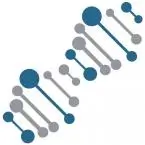Proteins are involved in most of the processes taking place inside a human cell, which is why mutations – or incorrect protein folding – can have tremendous consequences on the way we develop and age.
Incorrect protein folding happens when the balance between protein production, function and degradation – also known as homeostasis – is broken. For instance, the parkin protein (UCH-L1) controls homeostasis, as it signals the obsolete proteins that need to be eliminated, and generally directs proteins in and out of the cell. Mutations to this protein can trigger Parkinson’s disease.
However, protein degradation – a mechanism for removing incorrectly folded or damaged proteins – has recently caught researchers’ attention, given its newly discovered, crucial function in preventing such diseases. The Action’s main aim is to deepen understanding of protein degradation, as it plans to answer one of the pending research questions about the identity of the enzymes controlling the degradation of certain proteins. In order to do so, the network will enable collaboration among early-stage and experienced researchers in the field, which would translate science into innovation and ultimately lead to improving human health.
The Action plans
The network reunites experts from over 100 laboratories across 20 European countries. It intends to set up a think-tank that would select and support outstanding projects meant to take results further and set up new medical applications. Moreover, the network aims to introduce an integrated approach to research, by developing a common strategy to identify specific areas and clinical trials that could advance findings and to share expertise on key issues.
The Action will hold its first meeting in April 2014. It will run for four years and will stay open to any kind of new participation.
